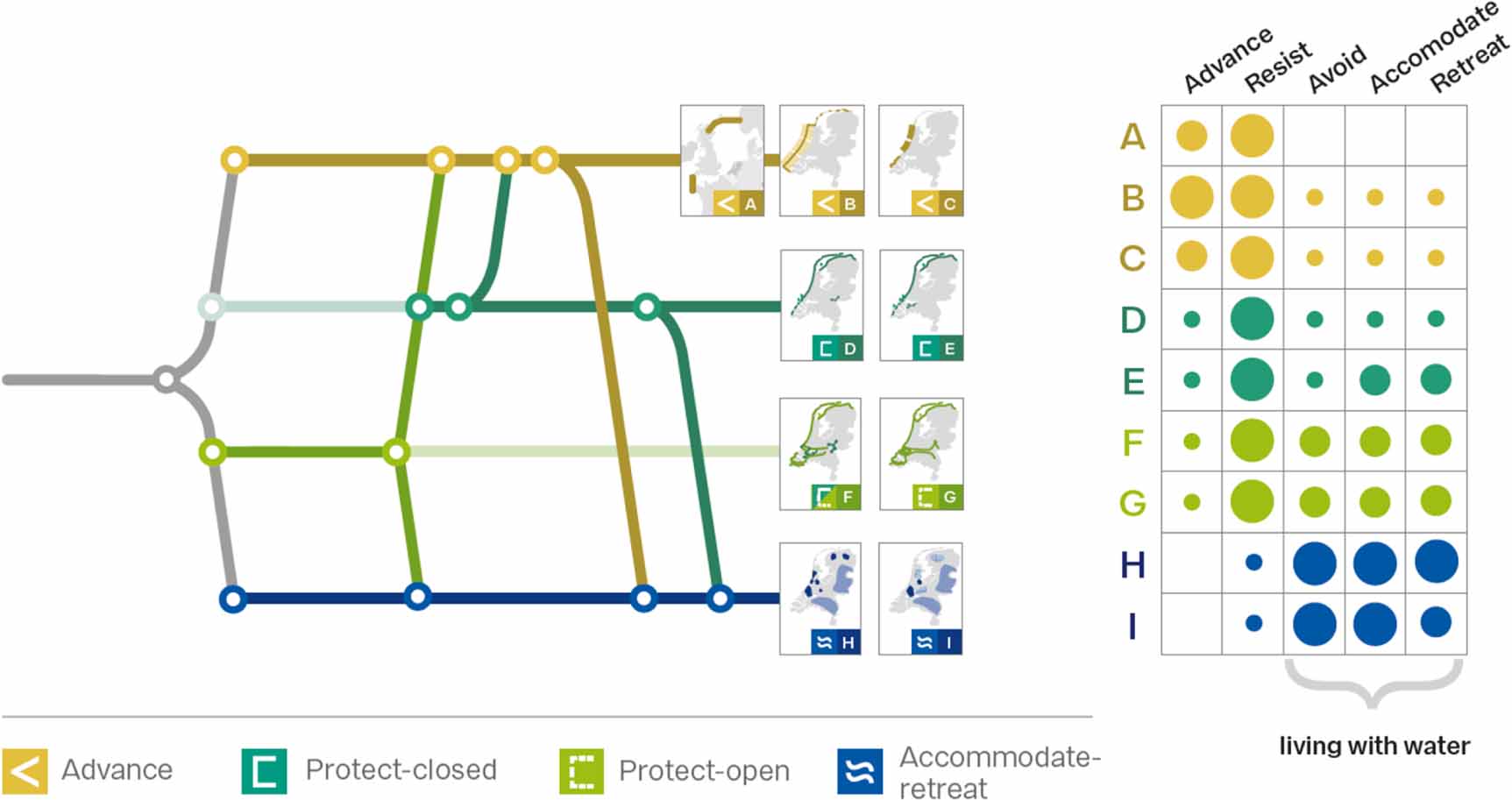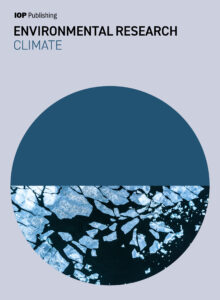ERCL研究文章|荷兰与水共存(meebewegen)作为气候适应的专家观点

In many places around the world, flood defenses—structures such as dams, levees, and dikes—have allowed societies to grow and thrive near bodies of water. However, adapting to intensifying climate change may require an alternative or additional flood management strategy for living with water, motivated by both long-term flood risk reduction and other societal goals. Based on 43 interviews with climate adaptation experts in the Netherlands, we evaluate perspectives on living with water—or meebewegen in Dutch—including the degree to which living-with-water measures are expected to be implemented, their likely role as part of the Netherlands’ future flood risk management, and enablers and barriers. We find widespread agreement that many living-with-water measures will be implemented at large to very large scale, but find the most disagreement about the subset of living-with-water measures focused on retreat. We develop a typology that organizes the diverse set of perspectives on the future role of living with water into four quadrants, based on whether experts expect flood risk management to depend more on engineering flood defenses or living-with-water strategies, and on whether living-with-water strategies are viewed as socio-politically favorable or unfavorable. We identify spatial constraints, political leadership, living-with-water narratives, and misaligned incentives as factors shaping the barriers to and opportunities for living with water. Our research shows that, despite wildly differing perspectives about flood adaptation through living-with-water measures, points of agreement exist about limits of current adaptation strategies and some need for living with water strategies. These could be harnessed to enhance living with water where this new paradigm of water management emerges.
文章介绍
通讯作者:
- Caroline M Kraan,美国迈阿密大学
期刊介绍

- 2024年影响因子: 5.4 Citescore: 4.0
- Environmental Research: Climate(ERCL)是一本多学科、开放获取的期刊,致力于解决有关物理科学的重要挑战以及气候系统和全球变化的评估,并在影响/未来风险、复原力、环境减缓、环境适应、环境安全和最广泛意义上的解决方案方面进行努力。我们鼓励所有的研究方法,包括定性、定量、实验、理论和应用方法。
